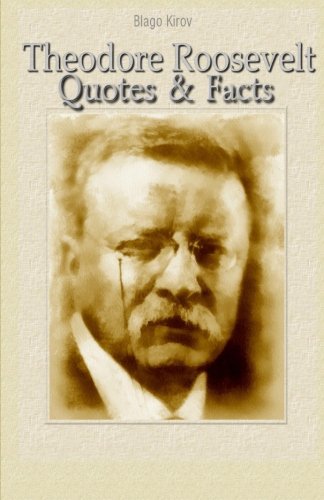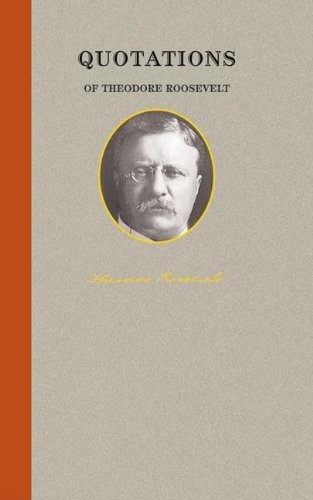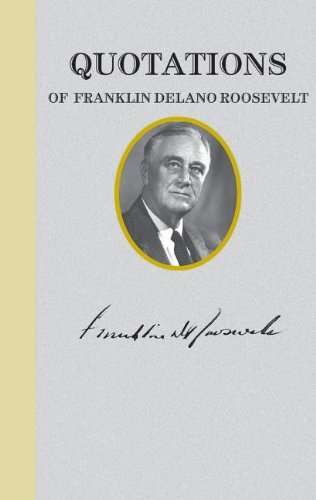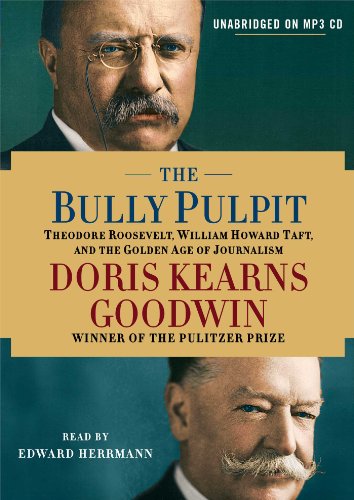
This book is an anthology of quotes from Theodore Roosevelt and selected facts about Theodore Roosevelt. “The worst of all fears is the fear of living” “Whenever you are asked if you can do a job, tell ‘am, ‘Certainly I can!’ Then get busy and find out how to do it.” “Americanism is a question of principle, of idealism, of character. It is not a matter of birthplace, or creed, or line of descent.” “If you’ve got them by the balls, their hearts and minds will follow.” “In any moment of decision, the best thing you can do is the right thing, the next best thing is the wrong thing, and the worst thing you can do is nothing.” “The government is us; WE are the government, you and I.” “Do what you can, where you are, with what you have.” “90% of the work in this country is done by people who don’t feel good”.” “A great democracy has got to be progressive or it will soon cease to be great or a democracy.” Theodore was the second of four children born to socialite Martha Stewart “Mittie” Bulloch and glass businessman and philanthropist Theodore Roosevelt, Sr. His brother Elliott was the father of First Lady Anna Eleanor Roosevelt, the wife of President Franklin Delano Roosevelt. His paternal grandfather was of Dutch descent; his other ancestry included English, Scots-Irish, Scottish, Welsh, French, and German. His father had been a prominent leader in New York’s cultural affairs; he helped to found the Metropolitan Museum of Art, and had been especially active in mobilizing support for the Union war effort. Before he entered Harvard College on September 27, 1876, his father told him “Take care of your morals first, your health next, and finally your studies”. After Harvard Roosevelt entered Columbia Law School, and was an able student, but he often found law to be irrational; he spent much of his time writing a book on the War of 1812. In 1905, Roosevelt offered to mediate a treaty to end the Russo-Japanese War. Roosevelt won the Nobel Peace Prize for his successful efforts. Roosevelt was an avid reader of poetry. Poet Robert Frost said that Roosevelt “was our kind. He quoted poetry to me. He knew poetry.” In all, Roosevelt wrote about 18 books (each in several editions), including his autobiography, The Rough Riders, History of the Naval War of 1812, and others on subjects such as ranching, explorations, and wildlife. His most ambitious book was the four volume narrative The Winning of the West, focused on the American frontier in the 18th and early 19th centuries. Roosevelt was an avid reader, reading tens of thousands of books, at a rate of several per day in multiple languages. Along with Thomas Jefferson, Roosevelt was the most well-read of all American politicians. Roosevelt was included with Presidents George Washington, Thomas Jefferson, and Abraham Lincoln at the Mount Rushmore Memorial, designed in 1927 with the approval of Republican President Calvin Coolidge President Bill Clinton awarded Theodore Roosevelt the Medal of Honor posthumously for his charge on San Juan Hill, Cuba, during the Spanish–American War.



